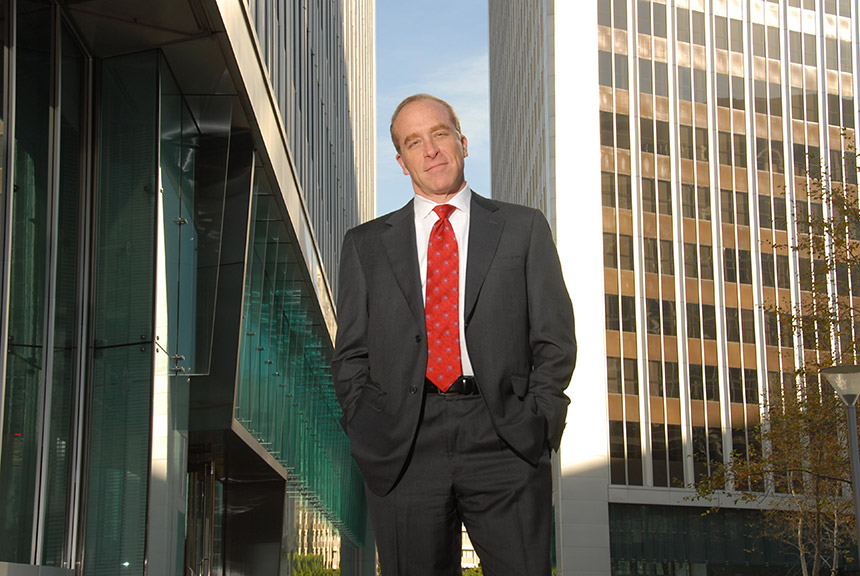
By Andrew Cohen
For better or worse — usually the latter — the common image of a successful entertainment lawyer sprang from Ari Gold, the bombastic, arrogant, maniacal agent from HBO’s hit show “Entourage.”
Scott Edelman, one of just five people named to The Hollywood Reporter’s Legal Legends list this year, reached stratospheric heights with a markedly different approach. It’s one he applies not just to high-stakes litigation, but to life itself.
“While you can and should fight as hard as you can, you should treat the other side with respect, and always remember that they’re not the devil and in fact are often very similar to you,” Edelman says. “I started to realize this as a young lawyer when I’d see opposing counsel at the soccer fields of our kids’ games, in synagogue, and on charitable boards.”
Taking a broader view, recognizing that big picture has also been good for business. Edelman has had numerous referrals from opposing counsel, an ongoing benefit to his remarkable career, as some have gone on the bench or in-house.
When he started out at Gibson Dunn as a young associate, the firm did little entertainment work. The field piqued his interest, so he took it upon himself to find any work on entertainment matters that partners brought in. Soon after he was named a partner himself in 1991, the firm asked him to co-chair its entertainment practice.
“When I asked, ‘Do we have one?’ I was told, ‘Not really, but you can build it.’” Edelman recalls, “I started taking Gibson Dunn alumni who worked at the studios, networks, and record companies to lunch. Most were too junior to send me work, but it was a start. They introduced me to their bosses, they got more senior, and little by little I began to build a practice.”
In 2004, Edelman’s Hollywood Q-rating soared when he was lead counsel in a fraud case against music producer Eli Samaha over fake movie budgets that his client, the German company Intertainment, paid a percentage of to finance the production of a large slate of films.
When a key witness (Intertainment’s former general counsel) turned on Edelman on the stand during the heated jury trial and began testifying for the other side, he had to pivot on a dime. Tossing aside his direct examination outline, Edelman deftly transformed his friendly questions into a searing cross examination, made clear that the witness had lied about what he planned to say, and won a $120 million jury verdict that included $20 million in punitive damages.
Rising star
Gibson Dunn’s entertainment law profile has grown with Edelman’s ever since. Now co-chair of the firm’s robust media, entertainment, and technology practice group, he has represented a VIP list of giant Hollywood companies that include Warner Bros., Sony Television, and ViacomCBS. From video-cassettes to DVDs to streaming, Edelman has seen massive change during his career.
“We represented Sony Electronics in the Supreme Court when the legality of time-shifting to enable recording of television on VCRs was an open question,” he says. “We handled music industry litigation when the internet enabled peer-to-peer copyright violations, including antitrust challenges to industry wide efforts to thwart copying.”
Taking pride in Berkeley Law’s great entertainment law success (the school is ranked No. 4 in the field and fellow alum Cliff Gilbert-Lurie ’79 also made this year’s Hollywood Reporter Legal Legends list), Edelman says it’s no accident.
“I think Berkeley has done as well as it has because it’s the top law school in the state and it attracts the best and the brightest,” he says. “I marveled at the intelligence and dedication of my classmates when I was there, and consider myself extremely fortunate to have had the opportunity to attend Berkeley Law.”
For all his Hollywood triumphs, Edelman is most proud of his three daughters, helping set up Gibson Dunn’s international pro bono program and persuading the firm to hire its first pro bono director, being inducted in the International Academy of Trial Lawyers and the American College of Trial Lawyers, and receiving the American Jewish Committee’s Learned Hand Award.
And while entertainment technology continually changes, his even-keeled approach does not.
“What I enjoy most about my work is the close collaboration with my clients and colleagues, and the teamwork involved in achieving the best possible result in the circumstances presented,” Edelman says. “I take great pride in those relationships.”